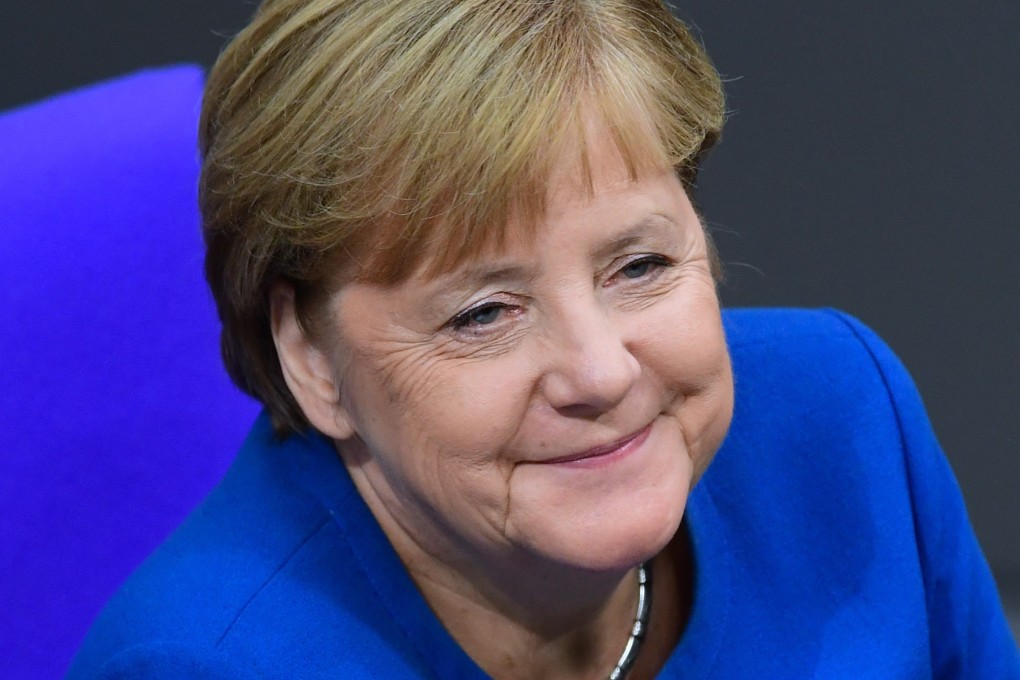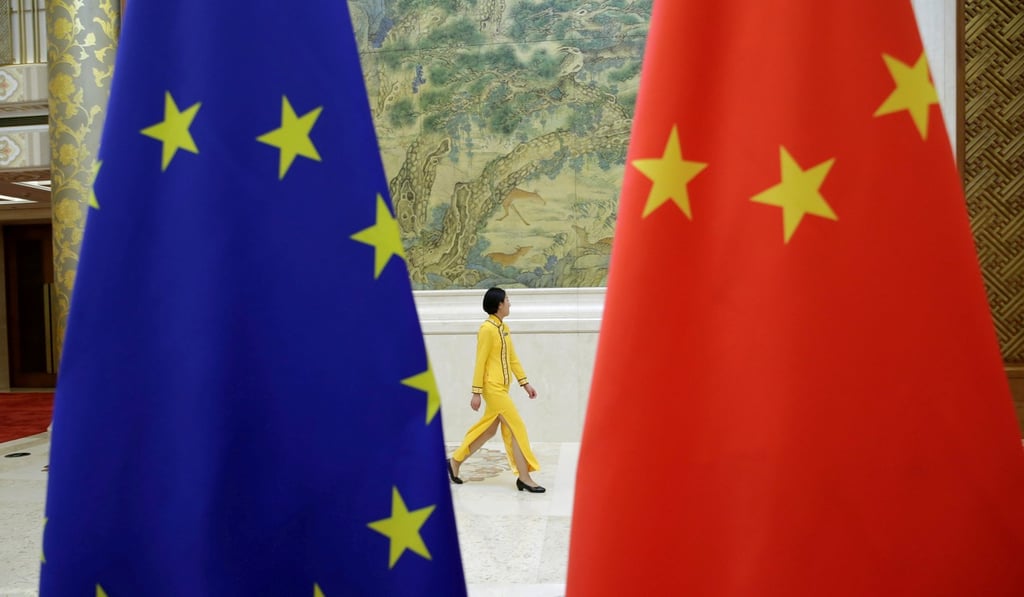Angela Merkel to make relations with China top priority when Germany takes on EU presidency next year
- Germany’s chancellor planning summit with Xi Jinping and all heads of government as bloc aims to present a ‘united front’ towards Beijing
- Brussels has branded China a ‘strategic rival’, and diplomatic sources say bloc wants to show divide-and-rule approach will not work

Chancellor Angela Merkel has promised to put EU-China relations to the fore when Germany takes on the European Union’s rotating presidency next year.
This includes plans for a summit meeting – which multiple diplomatic sources expect to be held in Leipzig next September – where, for the first time, President Xi Jinping would meet all the EU heads of government as well as the presidents of the European Commission and Council.
Diplomatic sources also said this was a chance to present a “united front” when dealing with Beijing.
Speaking in the Bundestag, the German parliament, on Thursday, Merkel said the German presidency would focus on relations with China in the second half of 2020.

The planned summit would also come ahead of her plan to step down as chancellor the following year.